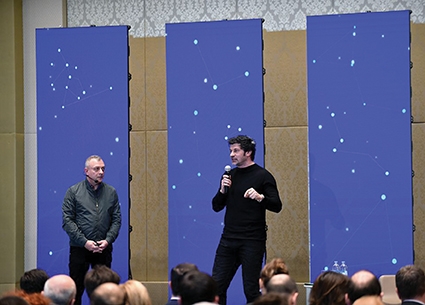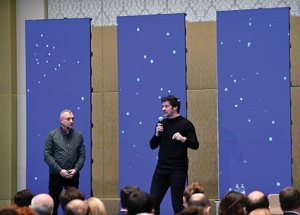What is the ‘Night Tbilisi Development Concept’?
Any economic activity that starts from 8pm and lasts until morning is considered a ‘Night Economy.’ It involves various directions, including transport and communications, restaurant and hotel business, culture industry, trade and tourism.
An explanation was made by Tbilisi Mayor, Kakha Kaladze on Friday, at the presentation of the Night Tbilisi Development Concept.
The Mayor stated that the decision to revive night capital was made after studying the experience of such big cities as Amsterdam, London, Madrid, Barcelona, Tokyo, Vilnius, Zurich and many others, which generate great income from nightlife activities.
According to the concept, the project aims to:
• Create new workplaces
• Promote tourism
• Create diverse activities
• Develop remote districts
• Transform Tbilisi into a 24/7 city
The project is expected to benefit ordinary citizens, tourists, small and medium businesses, large investment units and culture representatives.
Kaladze stated that in order to implement the project, the following steps need to be taken:
• Conduct a study
• Set up a strategy
• Seek donors
• Implement municipal initiatives
• Hold an international forum
• Make communication
“In order to implement the project, we need to develop night transport, and we are already working on this. Noise regulation is also crucial,” he said, adding that maximum safety will be provided for in Tbilisi during night hours.
Kaladze underlined that the concept envisages development and promotion not only of the central part of the city, but also the districts, recognizing that all parts of the capital need to be equally attractive to tourists.
The Head of the concept, Sergi Gvarjaladze, who also delivered a speech at the presentation, stated that one of the main aspects of the concept is communication and coordination between the main components of the project.
“Without communication, a night economy is unimaginable. I am sure that this will be one of the most interesting and creative projects in which I have participated,” he said, adding that one of the most important aspects of the nightlife economy is development of music and the creative industry.
Gvarjaladze said that by 2025, Georgia expects to be hosting around 11 million visitors per year. According to the current statistics, 50% of them will come to Tbilisi.
“Therefore, our goal is to increase the number of days of their visit, which is approximately 2.5-3 days,” he said, adding that outdoor cinemas and night museums will also be arranged in the capital.
The project head says the first step will be a study to reveal which aspects are important in Tbilisi nowadays and what kind of cultural activities will be most attractive for tourists.
“International researchers will also be involved in this project,” Gvarjaladze stated.
By Thea Morrison











